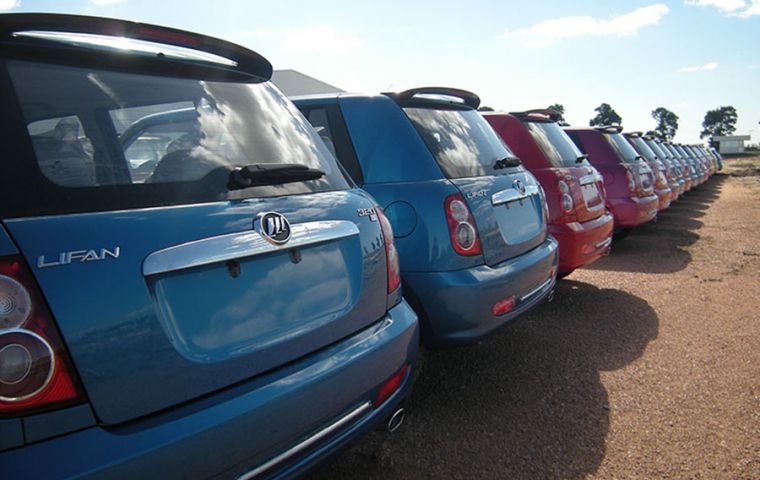MercoPress. South Atlantic News Agency
Chinese carmaker to halt Uruguay operations
 Short demand from Brazil led to Lifan's departure
Short demand from Brazil led to Lifan's departure The Chinese carmaking company Lifan has announced it would halt all of its operations in Uruguay and leave the country after agreeing to pay overdue wages to some 60 workers who have been laid off and alre already on unemployment insurance.
The company will hold an auction of machinery, spare parts and merchandise to raise funds for that purpose.
Union leader Ruben Villafan told El Observador that the decision was reached during a meeting at the Ministry of Labor with representatives of the company, including some of them participating virtually from China. The decision involves the dismissal of some 60 workers who had been on unemployment insurance for about three years.
The company also announced it planned to carry out an auction of machinery, spare parts and merchandise at the San Jose plant to fund these payments. According to Villafan, these assets are worth between US $ 1 million and 1.5 million, way above the funds needed for the arrangements.
“They had never talked about leaving the country apart from the difficulties of the region. And it was worse when they told us that they did not have all the assets to pay us. In an auction, we depend on a third party. If everything is not sold, how do we do it?” Villafan wondered.
In this scenario, the workers' union plans to request Labor Minister Pablo Mieres for a new extension of the unemployment insurance until the severance money is paid.
Lifan has reportedly joined the Geely group and the decision to leave Uruguay is believed to be linked to new business plans focused on repositioning the brand as an electric-car manufacturer.
The Lifan plant in Uruguay was opened in 2011. It stopped production in mid-2018 due to the loss of competitiveness in the Brazilian market, the main destination for its exports.
Before the first temporary closure of the plant in 2015, after the collapse of the Brazilian market, Lifan reached an annual production of 6,400 vehicles. Operations resumed in 2017 with an annual goal of 1,700 vehicles, but in 2018 the brand which at some point had hired about 400 workers simply gave up trying.




Top Comments
Disclaimer & comment rulesCommenting for this story is now closed.
If you have a Facebook account, become a fan and comment on our Facebook Page!